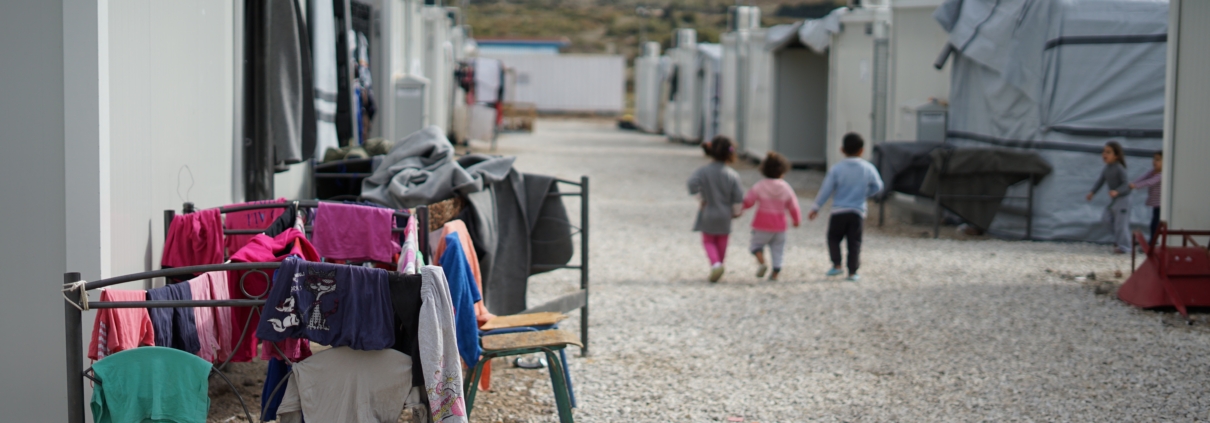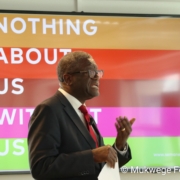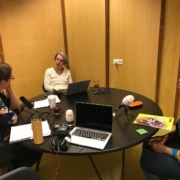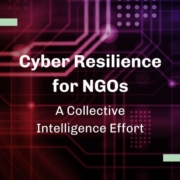New Upinion and Refugee Protection Watch report looks into how Syrian refugees in Lebanon experience humanitarian action: ‘affected people should have more say over the type of help they get and how they get it’
By Thomas Ansell
Insight and research company Upinion (a member of The Hague Humanity Hub) has recently released a new report in collaboration with Refugee Protection Watch, 11.11.11 and Basmeh & Zeitooneh for Relief and Development of the Refugee Protection Watch (RPW) which looks into how Syrian refugees in Lebanon feel included and listened to by UNHCR Lebanon. “Putting Syrian Refugees Centre Stage” looks to hold relief and aid organisations accountable to the people that they are helping in Lebanon based on the principle of ‘downwards accountability’, now put into action by the UN as the concept of “Accountability to Affected Populations” (AAP).
Or, to put it in the words of former UN Under-Secretary-General for Humanitarian Affairs and Emergency Relief Coordinator (quoted in the report): “Over the past decade, there has been growing recognition that affected people should have more say over the type of help they get and how they get it… despite all our good intentions, the humanitarian system actually is set up to give people in need what international agencies and donors think is best, and what the agencies have to offer, rather than giving people what they themselves say they most need.”
A gap between rhetoric and reality
Upinion looked into any potential gap between AAP aims and reality by speaking to over 400 Syrian refugees in Lebanon, creating an online survey answered by 334 people, and holding 12 focus groups with another 115 Syrian refugees, and six Key Informant interviews. Through analysis with Refugee Protection Watch, the report concludes that significant proportions of Syrian refugees in Lebanon don’t feel sufficiently listened to by UNHCR: 36% of survey respondents said that they ‘did not feel listened to’, whilst 35% of participants felt ‘somewhat’ included.
Whilst only a very small proportion of respondents said that they didn’t trust UNHCR, a far larger proportion noted that they had never been invited to submit feedback to the organisation after taking part in one of its programmes, trainings, or initiatives (87% of respondents). Nearly two thirds of respondents also noted that they did not feel that UNHCR’s feedback/complaint channels were ‘accessible, effective, or safe to use’. Similarly, during one of the focus groups, all 40 women in the group said that they were either unaware of how to submit a complaint to UNHCR, or felt that if they did file a complaint it would have negative repercussions for them.
Explaining decisions and including people in decision making
The research also suggested that when decision were made by UNHCR, lots of people did not feel well informed. For example, 68% of online respondents who had received a message informing them that their cash assistance was being reduced or cancelled did not get an “understandable” explanation for the decision. It also became clear from the focus groups that not a single participant understood the criteria that UNHCR uses to determine when someone has their financial or food aid suspended.
Recommendations and suggestions
Upinion and Refugee Protection Watch also provided a number of recommendations both up and down the accountability chain to make AAP more effective and recipients of aid feel more included in decision making. These include integrating an AAP framework specific to each aid situation, providing more access points to UNHCR staff (so that complaints and comments can be better dealt with), and increasing funding to the UNHCR phone hotline. Other suggestions include opening up lines of communication by (for example) WhatsApp or other social media channels, and to include more community voices in planning and roll-out meetings.
The full report is available to read on the Upinion website.
Photo by Julie Ricard on Unsplash









